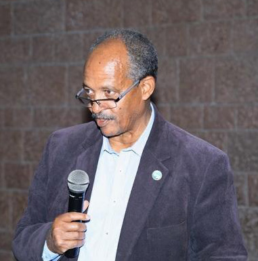
Dr. Yacob Arsano currently serves as an Associate Professor at Addis Ababa University’s School of Political Science and International Relations (AAU- PSIR). Dr. Yacob’s research focus on hydropolitics, coupled with his adamant advocacy for equitable water use in the Nile Basin, makes him a leading authority on inter-state relations in the Eastern Nile Basin.
His expertise, particularly on the construction of the GERD project and the consequent negotiations with riparian states, has allowed for a scientific framing of recently emerging water disputes in the region.
HORN REVIEW:Dr. Yacob, Thank you for making time to speak to us on the occasion of the partial power generation of the GERD project. How do you feel?
I am elated; so much so that I took it upon myself to be at the GERD site to celebrate this important milestone. Ethiopia, despite heavy foreign resistance, managed to complete two rounds of reservoir filling. The launch of the project’s partial-power generation is not only an achievement worthy of celebration but also serves to encourage Ethiopians to persevere on this path. Despite the many challenges Ethiopia continues to face, both foreign and domestic, I am proud and encouraged by the incremental progress we have made toward the realization of this project.
Though this milestone is worth the celebrations, both the citizenry and the government should continue to do as they have always done. From what we have been told from the GERD Secretariat, the dam is 84% complete; this occasion should also encourage the current government to optimally utilize the allocated resources for the timely completion of the project.
Horn Review: What kind of preparation, in terms of the required infrastructure, can be expected on the government’s part to increase access to electricity?
The generators at the Guba facility, at the GERD site, already have transformers that can handle up to 500kVa of power. When complete, this facility alone is sufficient to power the nation given that this power can be funneled into the existing power grids in the country. In the future, when the dam can generate power at capacity, the existing partial infrastructure can help facilitate commercial use with our neighbors in the region. Though there is always more work to be done, Ethiopia seems to show similar progress in its infrastructure development efforts.
HORN REVIEW:What can be expected from, both the population and the government, to see this project to completion?
The support from citizens, as you know, has been all inclusive: from young to old, poor or rich, urban to rural dwellers, all have contributed what they can to see this project to completion. The Ethiopian people have been donating, buying lottery and government bonds, texting 8100, as well as participating in fundraising activities. Now that we have started partial power generation, I hope for a heightened enthusiasm for completing the GERD.
Though this milestone is worth the celebrations, both the citizenry and the government should continue to do as they have always done. From what we have been told from the GERD Secretariat, the dam is 84% complete; this occasion should also encourage the current government to optimally utilize the allocated resources for the timely completion of the project.
HORN REVIEW:Given the unrelenting negative international coverage of the GERD project, how should this positive development be framed in foreign media?
It is no secret that this project is a long-standing dream for Ethiopians. Since its inception, the Dam was intended to uplift our destitute society. Not only is the dam being built within Ethiopian sovereign territory, but it is also financed by the Ethiopian people. This milestone, if anything, should serve to encourage cooperation with our regional partners. The lone strategy of demonizing the entire country to make a political point hinders our prospects of cooperation in the long run. While Egypt insists on remaining the sole decision-maker on their developmental pursuits with Nile waters, i.e. within their borders, the double standard in their demands of Ethiopia is made all the more evident. Media in all three nations can do more to promote an egalitarian viewpoint that encourages equitable use between all riparians. As the Nile is a transboundary river, media coverage should uphold standard expectations from all parties. To this end, media outlets need to promote honest and pragmatic conversations on this shared resource and put a stop to the mockery and single-sided arguments that do not promote a cooperative approach.
HORN REVIEW:What, in your view, are the next steps for Ethiopia?
After the construction, grid preparations, and two rounds of reservoir filling, there remains 16% until the project’s full completion. With subsequent construction, and as the dam gets higher, we are left with two additional rounds of reservoir filling. Yes, the first turbine has started to produce electricity, however, our goal should be to see the same incremental progress with all thirteen turbines. The government must also plan for the necessary infrastructure development to meet the population’s demands, as well as profit commercially by selling to regional neighbors. Lastly, Ethiopia should pursue other hydroelectric dams to better meet the demands of our growing population in its pursuit of self reliance.